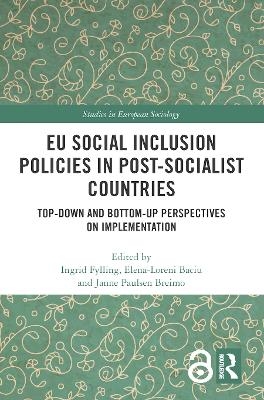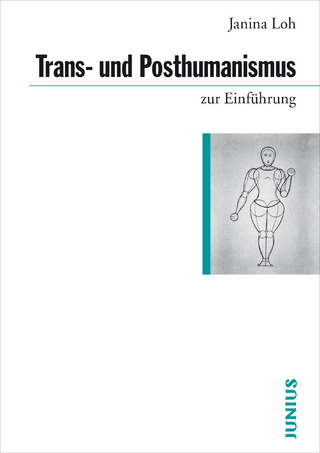
EU Social Inclusion Policies in Post-Socialist Countries
Routledge (Verlag)
978-1-138-35280-3 (ISBN)
The fact that post-socialist European Union (EU) countries are struggling with implementation of the EU's social inclusion policy is well known. But why is that so? Are the problems solely connected with how inclusion policies are enforced, or could it just as likely be the way policies are designed that creates challenges? This book explores experiences with inclusion policy implementation in seven different post-socialist EU countries. It focuses particularly on two groups of people in constant danger of social exclusion: people with Roma background and people with disabilities.
So far, researchers have studied these issues primarily through policy analysis, and thus not provided knowledge on what actually happens in local contexts where welfare services are produced. This book sheds light on implementation processes at different levels, both at the policy level and in local welfare production. The picture painted here is one of complex and conflicting considerations in inclusion policy implementation, between historical and cultural heritage from the communist period, and EU inclusion policy based on Western European political principles.
This book will appeal to undergraduate and post-graduate students, as well as postdoctoral students in social science, disability studies, educational science, and others. The book will also be useful for researchers and others interested in the development of inclusion policies and EU integration issues.
Chapter 2 of this book is freely available as a downloadable Open Access PDF at http://www.taylorfrancis.com under a Creative Commons Attribution-Non Commercial-No Derivatives (CC-BY-NC-ND) 4.0 license.
Ingrid Fylling holds a position as associate professor in Sociology at Nord University, Norway. Her main research interest is in disability studies and studies of local welfare services. She is also a board member of the Nordic Network for Disability Research. Latest publication (co-authored): Fylling, I. and Melbøe, L. (2019). Culturalisation, homogenisation, assimilation? Intersectional perspectives on the life experiences for Sami people with disabilities. Accepted for publication in Scandinavian Journal of Disability Research 2019 http://doi.org/10.16993/sjdr.575.. Janne Paulsen Breimo is a professor in social work at the Faculty of Social Sciences, Nord University, Norway. Her research interests include social policy and social welfare. She is the chair of the European Sociological Association’s Research Network on the Sociology of Social Policy and Social Welfare (RN26). Co-authored publications: Romanian Roma: An Institutional Ethnography of Labour Market Exclusion (2016), Networking enforced – comparing social services’ collaborative rationalesacross different welfare regimes (2016); Planning individually? Spotting international welfare trends in the field of rehabilitation in Norway (2016). Elena-Loreni Baciu is an Associate Professor at the Social Work Department from the West University of Timisoara, Romania and a co-founder of the Research-Action Centre on Discrimination and Social Inclusion at the same University. (Co)-authored publications: Between equality and discrimination: disabled persons in Romania (2017); Exploring the social relations of Roma employability (2016); Romanian Roma: An institutional ethnography of labour market exclusion (2016).
1. Implementing Social Inclusion Policies in Post-socialist EU Countries: Stumbling Blocks and Stepping Stones. 2. Independent Living in Central and Eastern Europe? The Challenges of Post-socialist Deinstitutionalization. 3. The Limits of Projects: Translating the Social Inclusion of Roma in Serbia. 4. Ethnicizing Poverty, Implementation of Structural Funds in Slovakia. 5. Policies for Whom? Roma as Ethnic and/or National Minorities: The Case of Hungary and the European Union. 6. How Can We Understand the Poor Implementation of Disability Inclusion Policy in Romania?. 7. EU Social Inclusion Policy Implementation in Poland 1989–2018. 8. Social Inclusion and Political Participation of Persons with Disabilities in Slovakia. 9. Social Economy Entities as a Practical Instrument to Enhance Social Inclusion in Poland. 10. The Promotion of Social Inclusion in the Slovak Education System through "Teach for Slovakia" Programme. 11. The Integrated Approach in Practice: A Framework for Roma Work Inclusion. Case Studies from Romania. 12. Inclusion Policies between EU Framework and Post-socialist Heritage.
| Erscheinungsdatum | 29.07.2019 |
|---|---|
| Reihe/Serie | Studies in European Sociology |
| Zusatzinfo | 3 Line drawings, black and white; 3 Illustrations, black and white |
| Verlagsort | London |
| Sprache | englisch |
| Maße | 156 x 234 mm |
| Gewicht | 494 g |
| Themenwelt | Sozialwissenschaften ► Soziologie |
| ISBN-10 | 1-138-35280-2 / 1138352802 |
| ISBN-13 | 978-1-138-35280-3 / 9781138352803 |
| Zustand | Neuware |
| Haben Sie eine Frage zum Produkt? |
aus dem Bereich


